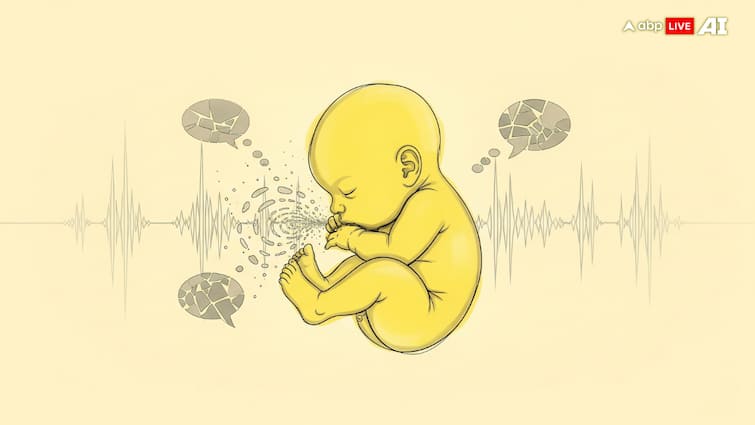Actor Ibrahim Ali Khan, son of Bollywood stars Saif Ali Khan and Amrita Singh, recently revealed in an interview with GQ India that he struggled with speech due to a jaundice-related hearing disability from birth. He shared that he worked extensively with speech coaches and therapists to overcome it.
What is neonatal jaundice?
Neonatal jaundice is a common condition in newborns, marked by a yellowing of the skin and eyes caused by an excess of bilirubin, a yellow pigment produced during the normal breakdown of red blood cells.
Why do newborns develop jaundice?
Newborns often have immature livers, which may not process bilirubin efficiently in the first few days of life. While most cases are mild and resolve naturally within one to two weeks, severe or untreated jaundice can lead to serious complications. If bilirubin levels rise excessively, it may cross into the brain and cause kernicterus, a rare but potentially fatal or permanently disabling condition. This can result in hearing loss, motor delays, and, in some cases, speech impairments.
Do all newborns develop jaundice?
No, not all—but most do, say reports. This is usually physiological jaundice, which is harmless and resolves on its own. While most cases of neonatal jaundice are benign, high serum bilirubin levels can lead to kernicterus, causing severe complications like bilirubin encephalopathy and hearing loss. Early detection through routine screening is essential to prevent such complications.
Is jaundice in newborns linked to hearing loss & speech impairment?
To understand whether childhood jaundice can indeed lead to speech impairments or delayed speech progression, ABP Live consulted a renowned neurologist and an equally well-known ENT specialist.
“While neonatal jaundice is quite common, severe or untreated cases can lead to a condition called kernicterus, where high bilirubin levels affect the brain especially areas like the brainstem. This can result in long-term complications such as hearing loss, motor delays, and speech impairments, as seen in some rare but impactful cases like Ibrahim Ali Khan’s,” said Dr Sheetal Goyal– Consultant Neurologist, Wockhardt Hospitals, Mumbai Central.
“Early detection is crucial. Parents should be alert to signs like poor feeding, lethargy, or unresponsiveness to sound in newborns. If jaundice persists beyond the typical window, a thorough neurological evaluation is necessary. Timely intervention whether through phototherapy, hearing tests, or speech therapy can significantly improve long-term developmental outcomes,” Dr Goyal added.
“In most cases, newborn jaundice is benign and resolves naturally. But when bilirubin levels rise excessively and are left untreated, they can impact areas of the brain involved in auditory and motor functions. This neurological damage, though rare, can manifest later as hearing issues or delayed speech development,” said Dr Pradip Uppal– Director and Consultant ENT, Jupiter Hospital, Thane.
“What’s important is vigilance in the early days. Persistent jaundice, especially beyond the first week, should be evaluated thoroughly. Interventions like phototherapy and developmental monitoring play a key role in minimising long-term risks,” Dr Uppal added.
What do peer-reviewed studies say?
However, not all research agrees on the link between neonatal jaundice and later speech or developmental issues. A 2012 study by the University of Rochester School of Medicine titled “Hyperbilirubinemia and Language Delay in Premature Infants” found no association between peak total serum bilirubin (TSB) levels or duration of hyperbilirubinemia in the first two weeks of life and language delay at age three in premature infants weighing ≤1500 grams. Instead, the study identified bronchopulmonary dysplasia (BPD) as a significant risk factor for language delay. BPD is a chronic lung condition that typically affects premature infants requiring oxygen therapy or mechanical ventilation soon after birth.
Adding to the complexity, multiple systematic reviews and meta-analyses have explored whether neonatal jaundice is linked to autism spectrum disorder (ASD), with inconsistent results. A comprehensive report published in April 2023 by Anhui Medical University, China, concluded there was no causal relationship between neonatal jaundice (including direct and indirect bilirubin) and ASD. The authors, however, acknowledged that larger sample sizes and further studies across ethnic populations are needed to examine the potential role of jaundice severity and duration.
A similar study conducted at Stanford University School of Medicine was also inconclusive in establishing a direct link between neonatal jaundice and ASD or speech delay.
At the same time, more recent research supports the biological plausibility of auditory disruption caused by high bilirubin levels. A report published in March 2025 by the Department of Paediatrics, Navodaya Medical College, Hospital and Research Centre, Karnataka, published in the International Journal of Contemporary Pediatrics evaluated 105 neonates with significant jaundice and found that bilirubin toxicity can impair the auditory pathway, particularly at the cochlear nucleus and brainstem.
“One effective screening method is oto-acoustic emission (OAE), followed by brain stem auditory evoked response (BERA), to assess hearing loss in neonates with hyperbilirubinemia. This study aimed to determine the incidence of hearing abnormalities in neonates with hyperbilirubinemia, correlate high bilirubin levels with OAE and BERA abnormalities, and evaluate OAE as a mass screening tool for sensorineural hearing loss,” the report said.
These findings suggest that, in rare but impactful cases, hyperbilirubinemia may contribute to hearing issues that later manifest as speech delays.
Kirti Pandey is a senior independent writer.
[Disclaimer: The information provided in the article, including treatment suggestions shared by doctors, is intended for general informational purposes only. It is not a substitute for professional medical advice, diagnosis, or treatment. Always seek the advice of your physician or other qualified healthcare provider with any questions you may have regarding a medical condition.]
Check out below Health Tools-
Calculate Your Body Mass Index ( BMI )
Calculate The Age Through Age Calculator

